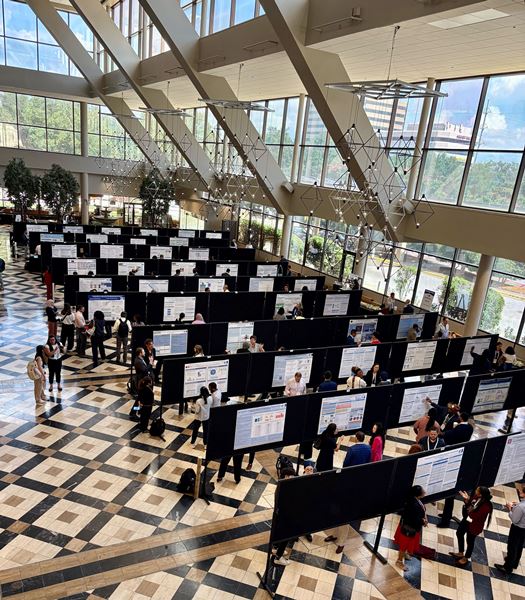Tuesday, August 19, 2025

By: Dr. Susan Gregurick, Associate Director of Data Science, NIH
Welcome to the August 2025 Director’s Corner! I’m excited to share updates from the NIH Office of Data Science Strategy (ODSS) as we work to build a modernized, integrated, and FAIR (Findable, Accessible, Interoperable, Reusable) biomedical data ecosystem. This month, I’m spotlighting the innovative work of the AIM-AHEAD program, which is transforming biomedical research through artificial intelligence and machine learning (AI/ML).
On the heels of the 2025 AIM-AHEAD Annual Meeting, July 7-10 in Dallas, TX, there are many success stories to highlight from the NIH’s AIM-AHEAD initiative. The annual meeting brought together over 430 vibrant community members, including awardees, trainees, fellows, stakeholders, mentors, and NIH officials from across the country, for an engaging in-person conference that highlighted the program's growing impact in AI health research and the development of AI talent. The event featured dynamic panel discussions, collaborative breakout sessions, and rich networking opportunities that fostered meaningful connections and knowledge exchange. With over 200 research posters presented, attendees witnessed the depth and innovation emerging from AIM-AHEAD initiatives.

The AIM-AHEAD Program for Artificial Intelligence Readiness (PAIR) empowers emerging institutions to lead in AI-driven health research through interdisciplinary training, coaching, mentorship, grantsmanship, leveraging AIM-AHEAD resources and support. A standout success is the Responsible AI Health Lab at the University of Washington Tacoma, co-led by PAIR awardee Dr. Martine De Cock. With AIM-AHEAD’s support, the team secured an NSF National Artificial Intelligence Research Resources (NAIRR) pilot award to advance synthetic data generation using real-world datasets, paving the way for high-impact AI tools in healthcare.
Another key success story emerging from the AIM-AHEAD program is its ability to empower clinicians to integrate AI into their daily practice. Through hands-on projects, personalized mentorship, and real-world applications, the program equips healthcare professionals to drive meaningful and impactful AI adoption at the frontlines of care.
For example, Yui Nishiike, a Nurse Practitioner and the Chief Medical Information Officer at LifeLong Medical Care—and one of the AIM-AHEAD Leadership Fellowship awardees—exemplifies the power of clinician-led innovation. With the support of expert mentorship, she developed an AI-driven risk model that flags patients at high risk of missing appointments or prescriptions-critical factors contributing to care gaps. By leveraging enhanced electronic health records (EHR) and AI, Nishiike is making new technologies more responsive to the unique needs of patients served by Community Health Centers like LifeLong.
At this year’s AIM-AHEAD annual meeting, one standout project came from Dr. Jay Patel, a Dentist and Clinical Informaticist from Temple University, an AIM-AHEAD Clinicians Leading Ingenuity IN Al Quality (CLINAQ) Fellowship awardee. His innovative work focuses on whole-person care by integrating EHR and dental health records-two systems that have traditionally operated in isolation. By bridging this divide, Dr. Patel’s project enables clinicians to develop a more comprehensive view of a patient’s health, including oral health alongside conditions like cancer and other medical issues. His work not only highlights the power of data integration but also reinforces the importance of treating patients as whole individuals.
Lastly, the AIM-AHEAD Program also established meaningful partnerships with American Indian Communities and the American Indian Higher Education Consortium (AIHEC). The partnership includes efforts to support the next generation of American Indian data science and AI talents, as well as build capacity at Tribal Colleges and Universities (TCUs). Through their stories, they demystify the path to careers in AI/ML, sharing the steps that led them to their current roles, the challenges they faced, and the individuals or programs that supported them along the way. Each scientist discusses their personal and professional motivations for entering the field, as well as their visions for the future of AI and data science in American Indian communities.
The above-mentioned examples underscore AIM-AHEAD’s influence in nurturing AI talents, advancing health research through AI and affirm its critical role in shaping the future of AI and health research nationwide.


